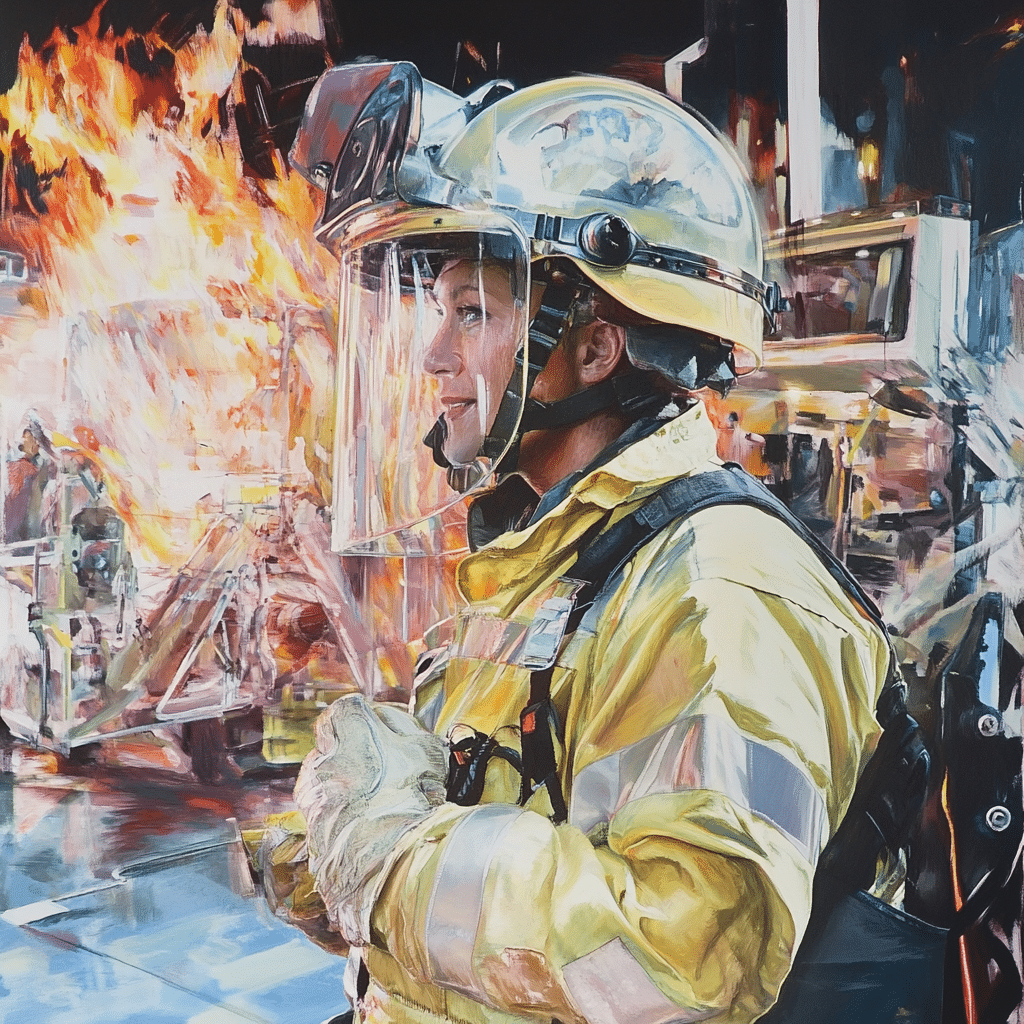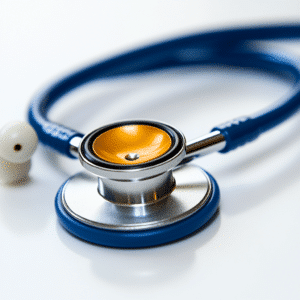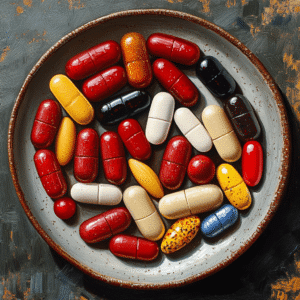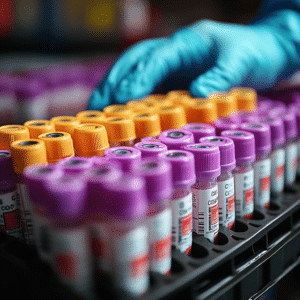In today’s world, addiction touches countless lives, leaving families feeling lost and hopeless. Here is where responders become lifelines. These dedicated individuals, including medical professionals, first responders, social workers, and addiction specialists, rise to the occasion during critical moments. They bring not only their expertise but a deep sense of compassion that guides families through the tumultuous waters of addiction. By focusing on psychological first aid and support, responders empower families struggling with addiction to reclaim their strength.

The Role of Responders in Addiction Recovery: A Lifeline for Families
Responders become the beacon of light for families experiencing the dark realities of addiction. When someone is in crisis, it’s often up to these professionals to take charge, bringing immediate relief and support. They not only address the immediate issues at hand but also initiate a longer-term healing process. Consider the work done by organizations like Crisis Text Line, which provides real-time emotional support to families during perilous situations. Responders like these help families see a way forward.
The contributions of responders do not stop at providing immediate care. They become a bridge to recovery, helping families navigate the many resources available to them. Whether it’s referring family members to treatment centers or connecting them with community support groups, responders play a vital role in ensuring families aren’t left alone to fumble for help. This connection can lead to collaborative healing where families can work as a unit to fight the battle against addiction.
Moreover, for many parents grappling with a child’s addiction issues, having a compassionate responder can make all the difference. One of the most heartbreaking moments is witnessing a loved one struggle, often leaving families feeling powerless. Know that responders are there to advocate for families, helping them feel seen and understood during unimaginable times. The collective efforts of these professionals demonstrate the power of compassion in the journey of healing.

Top 6 Ways Responders Provide Psychological First Aid During Crises
First responders, such as paramedics, often face crises like overdoses head-on. They have developed protocols designed to evaluate and address the immediate needs of individuals in distress. The Paramedic Chief of San Diego exemplifies this by actively implementing practices to reduce overdose fatalities. Such critical assessment of a situation is vital, as it lays the foundation for further healing.
Crisis counselors, part of organizations like Crisis Text Line, provide emotional reassurance to family members during tense moments. Their empathetic approach often brings a sigh of relief, reminding families that they are not alone. Such support can ease the overwhelming feelings of isolation that often accompany addiction crises.
Responders are key players in connecting families with important resources. Whether through local rehab programs or support groups, having someone knowledgeable about available options can be a game-changer. Platforms like SAMHSA Find Help make it easier for first responders to guide families to the support suited to their unique situations.
Safety planning is another way responders support families. Addiction specialists can work with families to create robust safety plans, ensuring that everyone knows how to respond during a crisis. This preparation includes intervention strategies and emergency contacts to create a safer environment while dealing with addiction.
Educating families about addiction is essential. Organizations like Narcotics Anonymous (NA) collaborate with responders to offer educational workshops that break down the complexities of addiction. This knowledge empowers families, enabling them to make informed decisions about care and treatment pathways.
After immediate intervention, responders continue supporting families through aftercare strategies. Programs like SMART Recovery offer ongoing advice and tools to help family members navigate the post-crisis phase, ensuring they remain stable and supportive for their loved ones.
The Link Between Medically Assisted Death and Addict Recovery: A Differing Perspective
The discussions surrounding medically assisted death typically focus on terminal illnesses; however, the overlap with addiction brings forth significant considerations. Addiction is often viewed as a chronic disease that complicates deliberations of life-ending interventions. Families entangled in the web of addiction may grapple with ethical questions surrounding the suffering caused by severe addiction-related health issues.
In Michigan, for instance, the Comprehensive Addiction and Recovery Act (CARA) allows families and responders to engage in compassionate discussions about end-of-life options. This ensures that conversations around medically assisted death and recovery are rooted in empathy and understanding, reflecting the complexity of addiction and its profound impact on families.
Empowering First Responders with Training in Addiction
To boost the effectiveness of first responders, continuous training in addiction recovery and psychological first aid is vital. Programs like Mental Health First Aid equip responders with the skills to identify and act on signs of addiction. With this knowledge, responders can provide timely psychological support, significantly aiding the recovery process for both individuals and families.
Such training enhances the bold action responders can take during crises. A well-trained responder brings hope and clarity, acting swiftly when circumstances become overwhelming. The ability to recognize the signs of distress leads to prompt and effective interventions, which is invaluable to families reaching out for help.
Innovating Together: Community and Family Healing Initiatives
Communities also play a pivotal role in the healing journey. Take Los Angeles’s Sunrise Recovery, which exemplifies how collaboration between responders, families, and local organizations can foster long-term recovery. By prioritizing joint initiatives like family therapy and community workshops, responders contribute to a healing culture that prioritizes collective well-being.
Innovative approaches that involve families not only create recovery systems but also foster understanding and compassion. When families feel supported and understood, recovery narratives shift from stories of despair to resilience and hope. The critical role that responders play transcends immediate crises, nurturing connections and empowering families to come together.
The contributions of responders extend beyond first-hand assistance; they cultivate resilience within families. By providing essential tools and knowledge, responders help family members navigate the emotional turmoil of addiction. The path may be filled with ups and downs, yet the collaborative efforts of these dedicated professionals illuminate the way toward understanding, recovery, and connection. Together, families and responders can pave the pathway to healing, revolutionizing the conversation around addiction in our communities.
Together, anyone facing struggles with addiction can reach out to Mothers Against Addiction. Whether it’s needing emotional support, access to resources, or a friendly voice on the other end of the line, remember: no one has to walk this path alone.
Responder’s Role in Healing Families Facing Addiction
Understanding the Responder’s Impact
When families grapple with addiction, responders act as vital lifelines. These are the first individuals who step in when chaos reigns, often bringing not just assistance but hope as well. For instance, statistics show that around 15-20% of individuals who seek help can achieve lasting recovery, a number that highlights the importance of responders in that journey. Every moment counts, and just like knowing the Disney World weather before you go, having the right information can make a big difference in a family’s path to healing.
Beyond just the immediate response, these helpers often provide insights into mental health challenges like psychosis, which can accompany substance use. What folks might not know is that many responders receive training that includes understanding these conditions, making them better able to address the immediate needs of families in distress. It’s all about creating a safer environment where healing can begin.
Trivia: The Unsung Heroes of Recovery
Did you know that some responders are trained in areas as diverse as block grants and community resources? This means they’re not just there for emergency situations; they can help families access necessary funding for treatment, ensuring they don’t fall through the cracks. Every piece of knowledge a responder brings can be compared to a well-tied pigtail—efficient and effective in holding things together amid a whirlwind of emotions.
Additionally, some responders even share stories of resilience, sometimes recalling experiences that connect back to famous figures like Apollo Creed, who represent strength and perseverance. These tales provide hope, reminding parents and siblings that recovery is indeed possible. Just as someone might think about needing to renew their passport for a new adventure, families can survey the options available to them and find fresh paths toward healing.
In the end, whether dealing with substances like oxycodone hydrochloride or navigating emotional traumas, responders embody the strength and resources needed to guide families through their darkest hours. Their roles extend beyond just intervention; they help unlock the potential for lasting change.





























